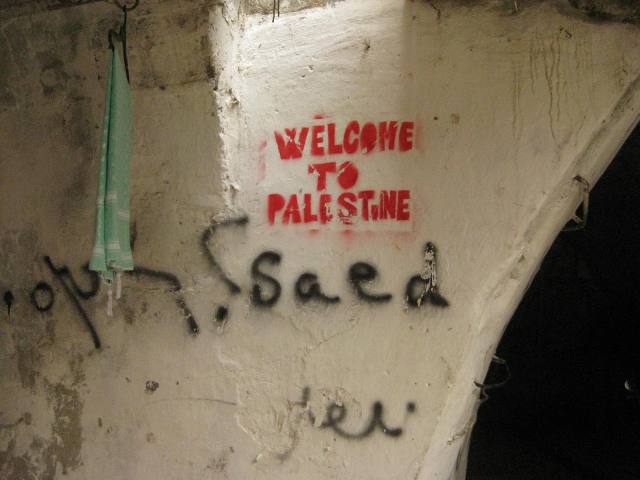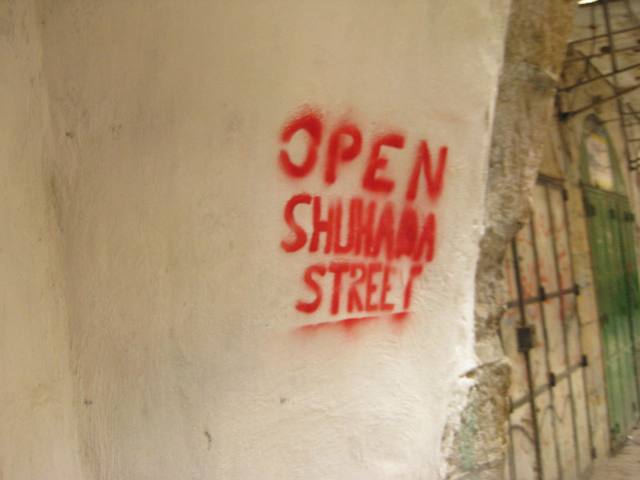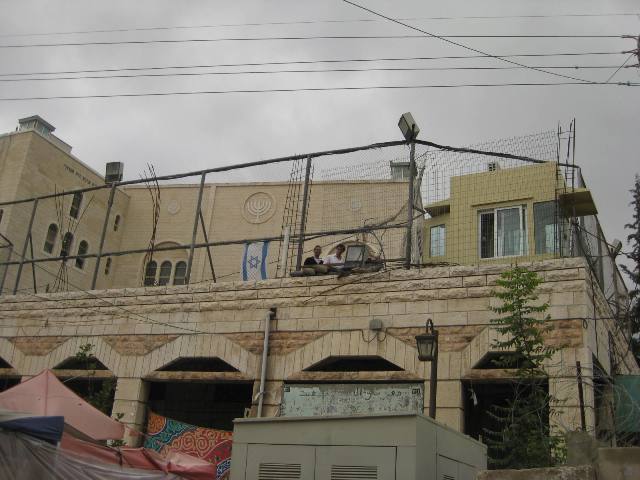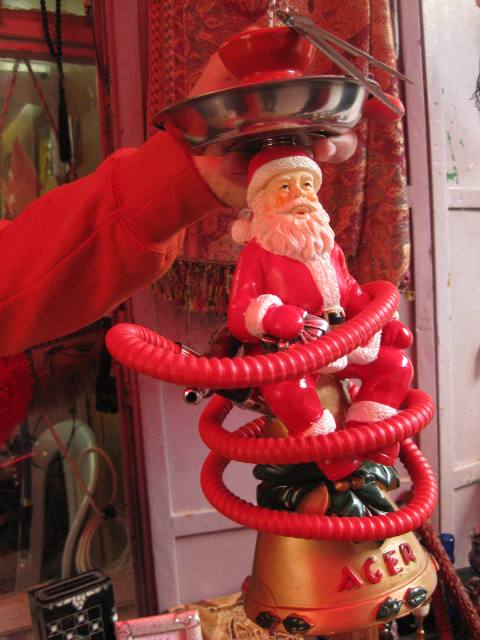Hebron
Occupation Among Us
Charming and I visited Hebron last month, on December 8, 2012 with two of his co-workers: Birlam and Osama. Osama is the merry guy you'll recognize from my Gaza post. Birlam is equally merry, and together Birlam and Osama had a joking cameraderie that was fun to be around and put me at ease with these two.
This ease was in spite of our location, which, along with Nablus is one of the most traditional cities in the West Bank with strong anti-Israel sentiment.
There's a history of bloodshed on both sides. The Saturday we were there, and most days, the occupants, both Israeli and Palestinians, seemed to coexist, ignoring each other like cows of different colors locked in the same field. However, for a newcomer like me, the situation was shocking. The settlements divide the city, displaying a microcosm of what's going on in the whole area. The drama is played out street by street.
A local group was trying to make a clear point about where we were:
We walked through the old city, near what used to be the main street, called Shuhada Street. Shuhada Street was shut down by the Israeli army in 1994 to car traffic, and later, to foot traffic. The economic heart of the city was lost, with 570 Palestinian shops shutting down, and many residents moving out.
It looked like the same group with the red paint was at work again.
We emerged into a square - the center of Hebron. Ahead were Israeli soldiers guarding a settlement entrance.
To our left was a large stone structure, topped by a fence and what appeared to be some male Israeli settlers. They looked down at us, who were obviously tourists, and blew kisses. I took a photo and they instantly went from kiss-blowing to finger-wagging.
Walking more, we saw a street that was literally divided, with a large portion open for Israeli cars, and a side portion open for Palestinian pedestrians. The Israeli army was providing security to a small group of settlers who appeared to be on a tour. As one settler joined the group, he marched down the center of the road, flanked by solders. He stood out in civilian clothes next to the soldiers, and he held an assault rifle in front of him. I wanted to take a photo, but chickened out because we were too close to him. And he had a gun.
After that, we circled back through the portions of the market that remain open. I was eager to see the famous netting that protects the open-air market from the settlers who live in buildings that tower over the market. This netting protects them from the trash that settlers have been reported to throw down on them. I didn't see anyone throwing anything, but we were there on Shabbat, the Jewish holy day of rest.
After the market walk, during which we momentarily and unseriously considered purchasing a Santa Claus Argila...
...We went out for a meal and argila with Birlam and Osama.
The whole day, Osama was teasing Birlam about her thick fleece pants. I admired them; they were embroidered with colorful flowers and looked like a smart choice for a cold day. But like a playful younger brother, Osama kept teasing her, calling her pants "pajama pants." He kept finding moments to make reference to the fact that she was in her pajamas. She laughed along good-naturedly. Birlam heads up the regional office in Hebron, and her large extended family has great esteem in the city. Everywhere we went people greeted her with respect, and she greeted them with a friendly word. Later in the day, after another jab about her "pajama pants," Osama said "Well, I better be careful. With one phone call you could have me killed." Birlam grinned.
"Forget the phone call. With one word. My relatives are everywhere."
I asked Charming about the fact that Birlam seemed so, well, happy, compared to what I perceive as the busy, worried, and nonpublic lives of women in Palestine. He responded that she was well-connected, respected, had a good job, didn't take any bull****, and was not married. So my interpretation is that by not being married in this culture, she was able to keep her sense of independence and self-determination. On the not taking any bull**** front, she told us a story about driving in traffic. Someone cut her off, thinking, she said, "that he could because she was a woman." Well, she jumped out of her car and started yelling at him, and soon had him apologizing upside down and sideways.
Oh, I almost forgot one of the most sense-stimulating parts of the day, which was a visit to the Hebron Kefiya factory. Our tour guides said it was the only Kefiya factory in Palestine.
I chose a few Kafiyas for gifts for my upcoming trip to NC to see the family (you can see photos of them in Kafiya's here).
And that is what I remember from a full day in Hebron back in December. Hope you enjoyed it! Please leave a comment below; I love reading your comments.








